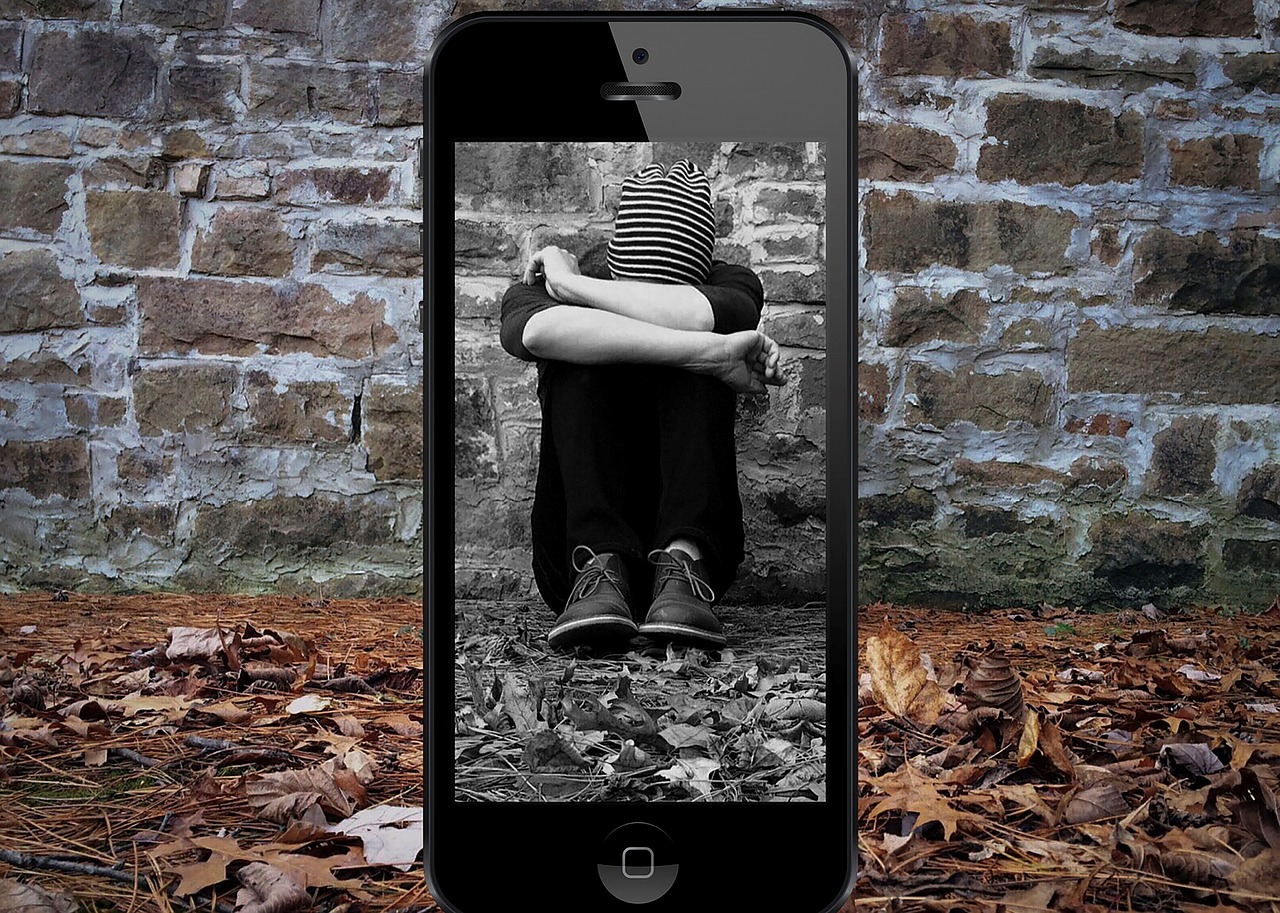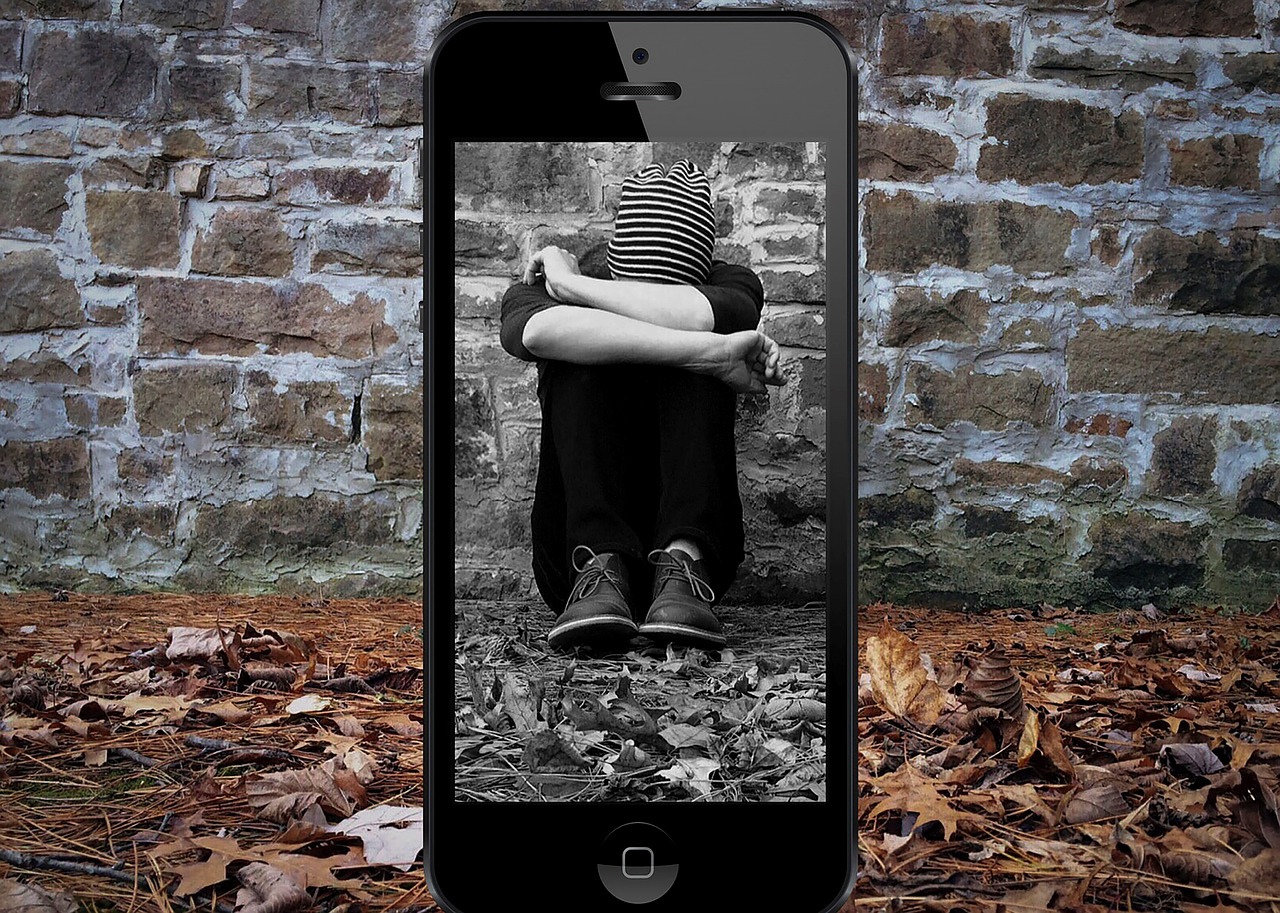Understanding and Preventing Cyberbullying in Kids
In today’s digital age, where our lives are intertwined with technology, the issue of cyberbullying has emerged as a significant concern for parents, educators, and children alike. Cyberbullying refers to the use of electronic communication to bully a person, typically by sending messages of an intimidating or threatening nature. This form of harassment can take place on various platforms, including social media, messaging apps, and even online gaming environments. It's not just a harmless prank; it can lead to profound emotional and psychological effects on children, making it essential for adults to understand its nature and impact.
So, why should we care? Well, imagine your child coming home from school, not because they wanted to, but because they dread facing their peers online. The thought of being ridiculed or humiliated in a digital space can be overwhelming. It’s crucial to recognize that the effects of cyberbullying extend beyond the screen and can seep into a child's daily life, affecting their mental health, social interactions, and academic performance. As parents and guardians, we must equip ourselves with the knowledge and tools necessary to combat this issue effectively.
Understanding the dynamics of cyberbullying is the first step in prevention. It’s not just about recognizing the signs; it’s about fostering an environment where children feel safe discussing their online experiences. By creating a culture of open communication, we can encourage kids to share their feelings and experiences without fear of judgment. This dialogue can help us identify potential issues early on and address them before they escalate.
Furthermore, educating children about online safety is paramount. They need to understand the importance of responsible digital behavior and the potential consequences of their actions online. Just as we teach them to be kind and respectful in person, we must instill the same values in their online interactions. This proactive approach not only helps in preventing cyberbullying but also promotes a healthier online culture.
In the sections that follow, we will delve deeper into the signs of cyberbullying, the profound impact it can have on mental health, and effective strategies for both prevention and intervention. By arming ourselves with this knowledge, we can better protect our children and help them navigate the complexities of the digital world.
Cyberbullying involves the use of digital platforms to harass, threaten, or intimidate others. Understanding its definition is crucial for recognizing its impact on children and developing effective prevention strategies.
Identifying the signs of cyberbullying is essential for parents and guardians. This section highlights common behavioral and emotional indicators that may suggest a child is experiencing online harassment.
A sudden change in a child's behavior can indicate they are experiencing cyberbullying. This subsection discusses specific behavioral changes that may warrant further investigation by parents or caregivers.
When a child withdraws from social activities or hobbies they once enjoyed, it may suggest they are facing bullying. This section emphasizes the importance of open communication with children.
A noticeable drop in academic performance can also be a sign of distress related to cyberbullying. This part explores the connection between emotional well-being and academic success.
Emotional signs such as anxiety, depression, or mood swings can indicate a child is being cyberbullied. This subsection provides insights into recognizing and addressing these emotional challenges.
Cyberbullying can have severe long-term effects on a child's mental health. This section examines the psychological consequences children may face and the importance of timely intervention.
The long-term psychological effects of cyberbullying can be devastating. This subsection discusses issues such as low self-esteem, anxiety disorders, and depression that may arise from prolonged exposure to bullying.
Cyberbullying can also lead to social isolation and difficulties in forming relationships. This part highlights the importance of fostering healthy social interactions for affected children.
Preventing cyberbullying requires proactive measures from parents, educators, and communities. This section outlines effective strategies to create a safer online environment for children.
Encouraging open communication between children and adults is vital for prevention. This subsection discusses how to foster trust and dialogue about online experiences.
Teaching children about online safety and responsible digital behavior can help prevent cyberbullying. This part emphasizes the importance of education in fostering a positive online culture.
When cyberbullying occurs, it is crucial for parents to know how to intervene effectively. This section provides actionable steps for parents to support their children during such challenges.
Keeping a record of bullying incidents is essential for effective intervention. This subsection discusses the importance of documenting evidence and reporting it to the appropriate authorities.
In some cases, professional help may be necessary to address the emotional impact of cyberbullying. This part explores options for counseling and support systems available for affected children.
- What is cyberbullying? - Cyberbullying is the use of digital platforms to harass, threaten, or intimidate someone.
- How can I tell if my child is being cyberbullied? - Look for changes in behavior, withdrawal from activities, academic decline, and emotional indicators such as anxiety or depression.
- What should I do if I suspect my child is a victim of cyberbullying? - Engage in open communication, document incidents, and consider seeking professional help if necessary.
- Can cyberbullying have long-term effects on children? - Yes, it can lead to serious mental health issues, including anxiety, depression, and social isolation.

The Definition of Cyberbullying
Cyberbullying is a term that has been thrown around a lot in recent years, especially as our lives become more intertwined with technology. But what does it really mean? At its core, cyberbullying refers to the use of digital platforms—like social media, messaging apps, and even online games—to harass, threaten, or intimidate someone. This behavior can manifest in various forms, such as sending hurtful messages, spreading rumors, or sharing embarrassing photos without consent.
The anonymity of the internet often emboldens bullies, allowing them to act in ways they might not dare to in person. This anonymity can make it challenging for victims to identify their aggressors, adding another layer of distress to their situation. Unlike traditional bullying, which might occur in a specific location like a school or playground, cyberbullying can follow a child into their home, making it feel inescapable.
Recognizing the different forms of cyberbullying is crucial for parents and educators. Here are some common types:
- Harassment: Repeatedly sending offensive, rude, and insulting messages.
- Impersonation: Pretending to be someone else online to spread lies or harm their reputation.
- Exclusion: Intentionally excluding someone from an online group or activity.
- Doxxing: Publishing private information about someone without their consent.
Understanding the definition and scope of cyberbullying is the first step in recognizing its impact on children. It’s not just about the act itself; it’s about the emotional and psychological toll it can take on a young person. The experience of being bullied can lead to feelings of isolation, anxiety, and even depression. Therefore, being informed and aware of what cyberbullying entails is essential for parents, educators, and peers alike. By fostering a supportive environment and encouraging open discussions about online behavior, we can help create a culture that discourages such harmful actions.
In conclusion, cyberbullying is a pervasive issue that requires our attention. By understanding its definition and the various forms it can take, we equip ourselves and our children with the knowledge necessary to combat this modern menace. Remember, awareness is the first step toward prevention!

Signs Your Child is Being Cyberbullied
As a parent or guardian, it's crucial to be aware of the signs that may indicate your child is experiencing cyberbullying. This form of bullying often occurs in the shadows, making it difficult to detect without careful observation. By understanding the behavioral and emotional indicators, you can take proactive steps to support your child. Let’s delve into some of the common signs that may suggest your child is facing online harassment.
One of the first things to look out for is any sudden change in your child's behavior. If your once cheerful and outgoing child starts to become withdrawn or irritable, it might be a red flag. For instance, if they suddenly refuse to go to school or participate in activities they previously enjoyed, this could indicate they are dealing with something distressing online. It’s important to approach them with empathy and openness, allowing them to express their feelings without fear of judgment.
When children withdraw from social activities or hobbies, it can be a significant indicator of distress. Imagine your child who used to love playing soccer now avoids the field and prefers to stay indoors. This withdrawal can stem from fear of encountering their bullies or feeling embarrassed about the situation. Engaging in open conversations about their feelings can help bridge the gap and encourage them to share their experiences.
Another sign that your child might be experiencing cyberbullying is a noticeable decline in academic performance. This can manifest as a drop in grades, lack of interest in schoolwork, or difficulty concentrating in class. When children are emotionally distressed, it can affect their ability to focus and perform academically. If you notice such changes, it might be time to have a candid conversation about what’s going on in their lives.
Emotional signs can also provide insight into whether your child is being cyberbullied. Look for signs of anxiety, depression, or sudden mood swings. If your child seems more anxious or irritable than usual, it could indicate they are struggling with online harassment. Recognizing these signs early can lead to timely intervention, helping your child regain their emotional footing. Remember, it’s essential to create a safe space for them to discuss their feelings openly.
In summary, being vigilant about the signs of cyberbullying is essential for every parent. By staying connected with your child's emotional and behavioral changes, you can help them navigate the challenges of the digital world. Always remember that open communication is key, and fostering a trusting relationship with your child will encourage them to share their experiences with you.
Q: What should I do if I suspect my child is being cyberbullied?
A: If you suspect your child is being cyberbullied, the first step is to have an open and honest conversation with them. Listen to their concerns and reassure them that it’s okay to talk about their feelings. Document any incidents and consider reporting the bullying to the appropriate authorities, such as school officials or the platform where the bullying is occurring.
Q: How can I encourage my child to talk about their online experiences?
A: Create a safe and non-judgmental environment where your child feels comfortable sharing their thoughts. Ask open-ended questions about their online interactions and reassure them that they won’t get in trouble for discussing any issues they face. Regularly check in on their online activities to foster ongoing communication.
Q: Are there resources available for children affected by cyberbullying?
A: Yes, there are many resources available, including counseling services, hotlines, and support groups specifically designed to help children cope with the effects of cyberbullying. Encourage your child to seek help from trusted adults or professionals if they are struggling.

Changes in Behavior
When it comes to recognizing whether a child is being cyberbullied, one of the most telling signs is a change in behavior. Children are often like open books; their usual patterns of behavior can provide crucial insights into their emotional well-being. If you notice a sudden shift in how your child interacts with the world, it might be time to dig a little deeper. For instance, if your once vibrant child suddenly becomes withdrawn or irritable, these changes can be significant red flags.
Some common behavioral changes to look out for include:
- Increased Irritability: If your child is more prone to outbursts or appears easily frustrated, this could indicate underlying distress.
- Social Withdrawal: A child who used to enjoy spending time with friends may start isolating themselves, preferring to stay home rather than engage in social activities.
- Changes in Sleep Patterns: Look for signs of insomnia or excessive sleepiness; these can be indicators of anxiety or depression linked to bullying.
- Changes in Eating Habits: Sudden weight loss or gain can also be symptoms of emotional turmoil, often exacerbated by bullying experiences.
It's also essential to consider that these changes might not happen overnight. They can develop gradually, making it easy for parents to overlook them. Sometimes, a child may not even realize that their behavior has changed. They might be caught in a cycle of anxiety or fear, which can further complicate their emotional state. This is why maintaining an open line of communication with your child is critical. Regularly check in on how they are feeling and encourage them to share their thoughts and experiences without fear of judgment.
In addition to these behavioral changes, watch for signs that your child may be struggling with self-esteem. If they start to express negative thoughts about themselves or their abilities, it’s crucial to address these feelings head-on. You can help them build resilience by reminding them of their strengths and encouraging positive self-talk. Remember, your support can be a lifeline for them during these challenging times.
Ultimately, being vigilant about changes in behavior can help you catch the signs of cyberbullying early, allowing you to intervene before the situation escalates. If you suspect your child is being bullied online, don’t hesitate to reach out for help. Whether through school resources, counseling, or community support, you have the power to make a difference in their lives.
- What should I do if I suspect my child is being cyberbullied? Start by having an open conversation with them about their online experiences. Encourage them to share their feelings and reassure them that they are not alone.
- How can I help my child improve their self-esteem? Engage in positive reinforcement, encourage their interests, and help them set achievable goals to build their confidence.
- Are there specific signs that indicate a child is being bullied online? Yes, look for changes in behavior, mood swings, withdrawal from social activities, and changes in academic performance as potential indicators.

Withdrawal from Activities
When a child begins to withdraw from activities they once enjoyed, it can be a significant red flag indicating they might be experiencing cyberbullying. Imagine a vibrant, colorful painting suddenly losing its hues; that’s akin to what happens to a child’s spirit when they face online harassment. They may no longer want to participate in sports, clubs, or even hang out with friends, which can leave parents feeling concerned and confused.
It's crucial to understand that this withdrawal is not just a phase; it often stems from feelings of fear, shame, or anxiety related to their online experiences. Children may fear being ridiculed or targeted further if they engage in social activities, leading them to isolate themselves. This social withdrawal can create a vicious cycle, where the more they pull away, the more vulnerable they become to negative feelings. Parents and guardians should be alert to the following signs:
- Refusal to attend social gatherings or events
- Sudden disinterest in hobbies or sports
- Spending excessive time alone in their room
- Changes in friendships, such as losing contact with close friends
Recognizing these signs early can make a world of difference. Open communication is key. Engaging in conversations about their feelings and experiences can encourage children to express what they’re going through. It’s essential to create a safe space where they feel comfortable sharing their thoughts without the fear of judgment. By doing so, parents can help their children navigate these troubling waters and remind them that they are not alone in this journey.
Furthermore, encouraging children to reconnect with their interests can serve as a powerful remedy. Whether it's signing them up for a class, joining a sports team, or simply spending time with family, these activities can help rebuild their confidence and sense of belonging. As a parent, showing understanding and patience during this time can significantly impact their emotional recovery.
Q: What should I do if my child is withdrawing from activities?
A: Start by having an open conversation with them about their feelings. Encourage them to share what’s bothering them and reassure them that they are not alone. Consider seeking professional help if the situation does not improve.
Q: How can I encourage my child to re-engage with their hobbies?
A: Gradually introduce activities they once enjoyed, perhaps by participating with them or inviting friends along. Make it a fun and low-pressure experience to help them ease back into social interactions.
Q: What are some signs that my child might be experiencing cyberbullying?
A: Look for changes in behavior, such as withdrawal from activities, a decline in academic performance, and emotional signs like increased anxiety or mood swings.

Academic Decline
When it comes to children, their academic performance can be a telling sign of their emotional state, especially in the context of cyberbullying. If your child has suddenly dropped from being a straight-A student to struggling to pass their classes, it’s time to take a closer look. This decline often reflects not just a lack of interest in schoolwork but may also indicate deeper emotional turmoil caused by online harassment. It's like a storm brewing inside them; on the surface, everything seems fine, but underneath, they are battling fierce winds of anxiety and fear.
One common scenario is when children who once thrived in a supportive classroom environment become withdrawn and disengaged. They might stop participating in class discussions or lose interest in homework assignments. You might notice them staring blankly at their assignments, unable to focus, as if their minds are elsewhere—perhaps replaying hurtful messages or comments they received online. This mental distraction can significantly hinder their ability to absorb information and perform academically.
Moreover, the emotional weight of cyberbullying can lead to a host of academic challenges, including:
- Increased Absenteeism: Children may start skipping school or avoiding social interactions, fearing further bullying.
- Declining Grades: As their mental health deteriorates, so does their motivation to study, resulting in lower grades.
- Difficulty Concentrating: The constant anxiety and stress can make it hard for them to focus on their studies.
Research shows that the psychological effects of cyberbullying can lead to conditions like anxiety and depression, which are notorious for impairing cognitive functions. Children may find it difficult to retain information or complete assignments, leading to a vicious cycle of poor performance and increased anxiety. If left unaddressed, this cycle can create a significant educational gap that may take years to bridge.
It is crucial for parents and educators to recognize these signs early. Open communication is key; asking your child about their school experience and any challenges they may be facing can provide insights that might otherwise go unnoticed. You can create a safe space for them to express their feelings and concerns. Remember, the sooner you intervene, the better the chances are for your child to regain their footing academically and emotionally.
- What are the first signs of academic decline in children?
Look for changes like decreased grades, lack of interest in schoolwork, and increased absenteeism. - How can I support my child if they are being cyberbullied?
Encourage open communication, document incidents, and consider seeking professional help if necessary. - What role do schools play in preventing cyberbullying?
Schools can implement anti-bullying policies, provide resources for students, and create a safe environment for open discussions.

Emotional Indicators
When it comes to recognizing whether your child is experiencing cyberbullying, paying attention to their emotional state is crucial. Children often express their feelings in subtle ways, and as a parent, guardian, or educator, being aware of these signs can make all the difference. Emotional indicators can manifest in various forms, and understanding these signs can help you provide the necessary support.
One of the most common emotional indicators is anxiety. If your child seems unusually nervous or fearful, especially when using digital devices, it might be a red flag. This anxiety could be tied to the fear of receiving negative messages or facing ridicule online. Additionally, children may exhibit mood swings, where they fluctuate between happiness and sadness, often without any clear reason. These sudden changes can be distressing not just for the child but for the entire family.
Another significant emotional sign is depression. If your child displays symptoms such as persistent sadness, lack of interest in activities they once enjoyed, or changes in sleep patterns, it’s essential to take these signs seriously. Depression can be debilitating and can lead to a host of other issues if not addressed promptly. It's also important to note that children may express their feelings through anger or irritability, which can sometimes be misinterpreted as typical adolescent behavior.
To provide a clearer picture, here are some emotional indicators to keep an eye out for:
- Increased withdrawal: If your child is isolating themselves from family and friends, this can indicate they are struggling emotionally.
- Changes in appetite: A noticeable increase or decrease in eating habits can be a sign of emotional distress.
- Difficulty concentrating: If your child is struggling to focus on schoolwork or daily tasks, it may be linked to their emotional state.
Understanding these emotional indicators is not just about identifying the problem; it’s about taking action. If you notice these signs, it’s important to create an environment where your child feels safe to express their feelings. Encourage open discussions about their online experiences and reassure them that they are not alone. Remember, the goal is to foster a supportive atmosphere that promotes healing and resilience.
Moreover, consider seeking professional help if the emotional indicators persist or worsen. Therapists and counselors can provide valuable tools and strategies for both you and your child to cope with the effects of cyberbullying. They can help in building emotional resilience and developing healthy coping mechanisms, which are essential for long-term well-being.
In conclusion, being vigilant about emotional indicators can significantly help in identifying whether a child is facing cyberbullying. By fostering open communication and seeking the right support, parents and caregivers can play a pivotal role in their child's journey towards healing.
Q: What should I do if I suspect my child is being cyberbullied?
A: Start by having an open conversation with your child. Encourage them to share their experiences and feelings. Document any incidents and consider seeking professional help if necessary.
Q: How can I help my child cope with feelings of anxiety related to cyberbullying?
A: Encourage relaxation techniques such as deep breathing or mindfulness exercises. Also, ensure they have a supportive network of friends and family to talk to.
Q: Is it important to report cyberbullying incidents?
A: Yes, reporting incidents to the appropriate authorities can help protect your child and prevent further bullying. It also raises awareness about the issue.

Impact of Cyberbullying on Mental Health
Cyberbullying doesn't just leave emotional scars; it can have severe and long-lasting effects on a child's mental health. Imagine a child who once laughed freely now feeling trapped in a web of anxiety and fear. The psychological consequences can be profound, often leading to conditions such as depression, anxiety disorders, and even post-traumatic stress disorder (PTSD). It's crucial for parents and educators to understand these impacts to provide the necessary support.
Research shows that children who are victims of cyberbullying often experience a decline in self-esteem. They may start to feel worthless, believing that the hurtful words they see online reflect their true value. This negative self-image can spiral into deeper issues, making it hard for them to engage in social situations or even perform well in school. The connection between mental health and academic success is undeniable, as a child grappling with emotional turmoil may struggle to concentrate or find joy in learning.
Moreover, the social consequences of cyberbullying can create a vicious cycle. Victims might withdraw from their friends and family, leading to isolation. They may feel that no one understands their pain, which only exacerbates feelings of loneliness and despair. It's essential to recognize that these children need a supportive environment where they can express their feelings without judgment.
To illustrate the impact of cyberbullying on mental health, consider the following table that summarizes the potential psychological effects:
| Psychological Effect | Description |
|---|---|
| Low Self-Esteem | Victims may feel worthless or inadequate due to negative online interactions. |
| Anxiety Disorders | Children may develop chronic anxiety, fearing further bullying or social situations. |
| Depression | Prolonged exposure to cyberbullying can lead to persistent feelings of sadness and hopelessness. |
| Social Isolation | Victims may withdraw from friends and activities, leading to increased loneliness. |
Understanding these effects is the first step toward helping children cope with their experiences. Parents, educators, and peers must work together to create a supportive atmosphere where children feel safe to share their struggles. By fostering open communication and encouraging children to express their feelings, we can help mitigate the damaging effects of cyberbullying on mental health.
- What should I do if I suspect my child is being cyberbullied? It's essential to talk to your child openly and without judgment. Encourage them to share their experiences and feelings.
- How can I help my child cope with the effects of cyberbullying? Providing emotional support, seeking professional help if necessary, and maintaining open lines of communication can significantly help.
- Are there any resources available for parents dealing with cyberbullying? Yes, many organizations offer support and resources for parents. Websites like StopBullying.gov provide valuable information.

Long-term Psychological Effects
Cyberbullying can leave deep, lasting scars on a child's mental health. The long-term psychological effects are not just fleeting feelings of sadness or anxiety; they can manifest into serious mental health disorders that affect a child's overall well-being. For instance, a child who has been bullied online may develop low self-esteem, constantly doubting their worth and abilities. This negative self-image can follow them into adulthood, influencing their personal and professional relationships.
Furthermore, prolonged exposure to cyberbullying can lead to anxiety disorders. Children may begin to feel anxious about going to school or engaging in social activities, fearing that they will be targeted again. These feelings can escalate into panic attacks or social phobia, making it difficult for them to interact with peers. In extreme cases, some children may even experience depression, which can lead to withdrawal from friends and family, and in severe instances, self-harm or suicidal thoughts.
It’s important to understand that the psychological impact of cyberbullying is not just limited to emotional distress. Research shows that children who are victims of cyberbullying may struggle academically, as their mental health issues can interfere with concentration and motivation. This can create a vicious cycle where poor academic performance further diminishes their self-esteem, leading to more significant mental health challenges.
To illustrate the potential long-term effects, consider the following table that summarizes the psychological impacts of cyberbullying:
| Psychological Effect | Description |
|---|---|
| Low Self-Esteem | Persistent feelings of worthlessness and self-doubt. |
| Anxiety Disorders | Increased feelings of worry and fear, often leading to panic attacks. |
| Depression | Prolonged sadness that can lead to withdrawal from social interactions. |
| Academic Challenges | Difficulty concentrating leading to declining grades and lack of motivation. |
In summary, the long-term psychological effects of cyberbullying are profound and can alter a child's life trajectory. It’s crucial for parents, educators, and communities to recognize these signs early and provide the necessary support to help children navigate through these challenging experiences.
- What should I do if I suspect my child is being cyberbullied? It's essential to have an open conversation with your child, encourage them to share their experiences, and document any incidents.
- Can cyberbullying affect a child's academic performance? Yes, the stress and anxiety caused by cyberbullying can significantly impact a child's ability to focus and succeed academically.
- How can I support my child emotionally? Providing a safe space for them to express their feelings, seeking professional help if necessary, and reinforcing their self-worth are all important steps.
- Is it necessary to involve the school in cases of cyberbullying? Absolutely. Schools have policies in place to address bullying and can provide additional support to your child.

Social Consequences
Cyberbullying doesn't just leave emotional scars; it can also create significant for children. Imagine a child who once thrived in a bustling playground suddenly retreating into a shell, avoiding friends and activities they once loved. This is often the reality for those experiencing online harassment. The impact can ripple through their social life, leading to isolation and a breakdown of relationships.
When children are bullied online, they may begin to fear social interactions. They might worry about being judged or ridiculed, causing them to withdraw from their peers. This withdrawal can manifest in several ways:
- Avoidance of Social Gatherings: Children may skip parties, sports events, or even school to avoid potential encounters with their bullies.
- Difficulty Trusting Others: Past experiences of being bullied can lead to a general mistrust of peers, making it hard for them to form new friendships.
- Strained Family Relationships: The stress of being bullied can spill over into family dynamics, leading to misunderstandings and conflicts at home.
Furthermore, the fear of judgment can lead to a significant decline in a child's social skills. They might struggle to engage in conversations or participate in group activities, fearing that they will be mocked or excluded. Over time, this can create a cycle where the child feels increasingly isolated, which only exacerbates their mental health issues.
According to a recent study, children who experience cyberbullying are three times more likely to report feelings of loneliness compared to their peers who are not bullied. This loneliness can lead to a vicious cycle where social withdrawal further deteriorates their mental health, leading to conditions such as depression and anxiety.
It's crucial for parents and educators to recognize these social consequences early on. By fostering an environment where children feel safe to express their feelings and experiences, adults can help mitigate the negative impacts of cyberbullying. Encouraging participation in group activities, promoting empathy among peers, and facilitating open discussions about online behavior can significantly help children rebuild their social connections.
In conclusion, the social consequences of cyberbullying are profound and far-reaching. The effects can linger long after the bullying has ceased, affecting a child's ability to form meaningful relationships and develop essential social skills. It is imperative that we work together—parents, educators, and communities—to create a supportive network that helps children navigate these turbulent waters.
- What is cyberbullying? Cyberbullying is the use of digital platforms to harass, threaten, or intimidate others, often leading to emotional distress for the victim.
- How can I tell if my child is being cyberbullied? Look for signs such as withdrawal from activities, changes in behavior, and emotional indicators like anxiety or depression.
- What should I do if I suspect my child is being cyberbullied? Open communication is key. Talk to your child about their online experiences and document any evidence of bullying.
- Are there long-term effects of cyberbullying? Yes, cyberbullying can lead to long-term psychological effects, including low self-esteem, anxiety disorders, and difficulties in forming relationships.

Strategies for Prevention
Preventing cyberbullying is not just the responsibility of one individual but a collective effort involving parents, educators, and the entire community. To effectively combat this pervasive issue, we must adopt a proactive approach that fosters a safe and supportive online environment for our children. So, how can we create such an environment? Let's explore some effective strategies.
First and foremost, open communication between children and adults is paramount. When children feel comfortable discussing their online experiences, they are more likely to report any troubling incidents. Parents should encourage their kids to share their thoughts and feelings about their digital interactions. This can be achieved by regularly engaging in conversations about their online activities and expressing genuine interest in their digital lives. For instance, asking questions like, "What did you do online today?" or "Have you encountered anything that made you uncomfortable?" can open the door to meaningful dialogue.
Additionally, educating children about online safety is crucial. Teaching kids about responsible digital behavior can empower them to navigate the internet safely. This includes understanding the importance of privacy settings, recognizing harmful content, and knowing how to block or report bullies. Schools can play a significant role in this education by incorporating lessons on digital citizenship into their curriculum. By doing so, we equip children with the knowledge they need to protect themselves and others online.
Another effective strategy is to establish clear guidelines for internet use at home. Parents should set rules regarding screen time, acceptable online behavior, and the types of websites children can visit. These guidelines should be discussed openly, allowing children to voice their opinions and concerns. This collaborative approach not only helps to create a sense of responsibility but also encourages children to think critically about their online actions.
Moreover, fostering a positive online culture is essential. Encourage children to engage in activities that promote kindness and empathy in their digital interactions. This can include sharing positive messages, supporting friends, and standing up against bullying behavior. By cultivating a culture of respect and understanding, we can significantly reduce the likelihood of cyberbullying incidents.
Finally, it’s essential to monitor children's online activities without being overly invasive. Utilizing parental control software can help parents keep track of their child’s online behavior while still respecting their privacy. This balance is crucial; children should feel trusted and empowered rather than surveilled. Regular discussions about what they encounter online can serve as a natural way to stay informed about their digital world.
In conclusion, preventing cyberbullying requires a multifaceted approach that combines open communication, education, clear guidelines, and a positive online culture. By working together, we can create a safer digital environment for our children, empowering them to thrive both online and offline.
- What is cyberbullying? Cyberbullying is the use of digital platforms to harass, threaten, or intimidate individuals, often targeting children and adolescents.
- How can I tell if my child is being cyberbullied? Look for signs such as withdrawal from activities, changes in behavior, and emotional distress like anxiety or depression.
- What can I do if I suspect my child is being cyberbullied? Open a dialogue with your child, document any evidence of bullying, and consider seeking professional help if necessary.
- Are there resources available for parents dealing with cyberbullying? Yes, many organizations offer support and resources for parents, including counseling services and educational materials on online safety.

Open Communication
When it comes to preventing cyberbullying, is your best ally. Imagine a bridge connecting you and your child—a sturdy, reliable structure that allows for easy conversations about anything, especially the tricky topic of online interactions. If you want to build this bridge, you need to lay a strong foundation of trust and understanding. Start by creating a safe space where your child feels comfortable sharing their feelings and experiences without fear of judgment or reprimand. Ask them about their day, their friends, and their online activities. You might be surprised by how much they are willing to share when they know you’re genuinely interested.
It’s also essential to be proactive in discussing the potential risks associated with digital platforms. Use relatable examples that resonate with their everyday experiences. For instance, you could compare the internet to a vast playground—while it can be a fun place to hang out, there are also bullies lurking around every corner. Encourage your child to come to you if they ever encounter anything that makes them uncomfortable. This way, they’ll know they have a trusted adult to turn to when they need help. Remember, the goal is not to scare them but to equip them with the knowledge to navigate the online world safely.
Additionally, consider setting aside regular times for family discussions about online behavior and experiences. This could be a weekly family meeting or casual conversations during dinner. During these moments, you can touch on topics such as respectful communication and the importance of empathy in online interactions. You might even want to share stories from your own experiences—perhaps a time when you faced challenges online or witnessed someone being unkind. These anecdotes can help your child understand the real implications of cyberbullying and the importance of standing up for themselves and others.
To further enhance this communication, you might want to establish some ground rules regarding internet usage. This could include:
- Setting limits on screen time to encourage offline interactions.
- Discussing which social media platforms are appropriate and why.
- Encouraging them to think critically about what they share online.
By fostering open communication, you empower your child to be more aware of their online environment. They become more likely to seek help when needed and less susceptible to the negative effects of cyberbullying. Remember, the key is to keep the lines of communication open; the more you talk, the more they’ll trust you. And that trust is invaluable in navigating the sometimes murky waters of online interactions.
Q: How can I tell if my child is being bullied online?
A: Look for signs such as withdrawal from social activities, sudden changes in behavior, and emotional distress. Keeping an open line of communication can help you identify these issues early.
Q: What should I do if I find out my child is being cyberbullied?
A: Document the incidents, talk to your child about their feelings, and consider reporting the behavior to the platform where it occurred. Professional help may also be beneficial.
Q: How can I educate my child about online safety?
A: Discuss the importance of privacy settings, the risks of sharing personal information, and encourage them to think before they post. Regular conversations about their online experiences can reinforce these lessons.

Educating Children about Online Safety
In today's digital age, is more crucial than ever. With the rise of social media, online gaming, and various digital platforms, kids are exposed to a world filled with both opportunities and risks. As parents and guardians, it’s our responsibility to equip them with the knowledge and skills to navigate this landscape safely. So, how can we effectively teach our children about online safety?
First and foremost, it's essential to have open and honest conversations with them. Discussing the potential dangers of the internet can be daunting, but it’s necessary. Start by explaining the concept of privacy. Make sure they understand that not everyone online has good intentions and that sharing personal information can lead to unwanted consequences. Encourage them to think before they post or share anything, reminding them that the internet is forever.
Another effective way to educate children is through role-playing scenarios. By simulating various online situations, you can help them practice how to respond appropriately. For example, if they receive a message from someone they don’t know, guide them on how to handle it. This kind of practice can empower them to make safer choices when faced with real-life situations.
Furthermore, teaching children about the importance of strong passwords is vital. You can explain that just like they wouldn’t leave their house unlocked, they shouldn’t leave their online accounts vulnerable either. Encourage them to create complex passwords and change them regularly. To make this more engaging, consider creating a fun game around password creation, where they earn points for using a mix of letters, numbers, and symbols.
Additionally, it's beneficial to familiarize them with the concept of digital footprints. Help them understand that everything they do online leaves a trace, which can affect their future. Discuss how colleges and employers often check social media profiles, and encourage them to think critically about the content they share. This awareness can foster a sense of responsibility in their online interactions.
Lastly, consider utilizing educational resources and tools designed for children. There are numerous websites and apps that teach kids about online safety in a fun and interactive way. Engaging them with these resources can make learning about online safety feel less like a chore and more like an adventure.
In summary, educating children about online safety is a multifaceted approach that involves open dialogue, practical exercises, and the use of engaging resources. By empowering our children with the right knowledge and skills, we can help them navigate the digital world safely and confidently.
- What age should I start educating my child about online safety? It's best to start as early as they begin using digital devices, usually around 5-7 years old.
- How can I monitor my child's online activity without invading their privacy? Open communication is key. Discuss the importance of safety and agree on guidelines together.
- Are there any specific tools I can use to help teach online safety? Yes, there are many educational apps and websites tailored for teaching kids about online safety, such as Common Sense Media.
- What should I do if my child encounters cyberbullying? Encourage them to talk to you, document the incidents, and report it to the appropriate platforms or authorities.

Intervention Strategies for Parents
When cyberbullying strikes, it can feel like a whirlwind of emotions for both children and parents. The first step in addressing this distressing situation is to remain calm and composed. Parents need to approach the issue with a level head, as children often look to their parents for guidance and support during tough times. If your child confides in you about being bullied online, it's essential to listen actively and validate their feelings. This can help them feel understood and less isolated in their experience.
One of the most critical intervention strategies is documenting evidence. Encourage your child to keep a record of all incidents of cyberbullying, including screenshots of messages, posts, or any other relevant information. This documentation is vital not just for understanding the scope of the bullying but also for reporting it to the appropriate authorities. Having concrete evidence can significantly strengthen any claims made to schools, social media platforms, or law enforcement, should it come to that.
In addition to documentation, parents should consider reporting the bullying to the platform where it occurred. Most social media sites and online games have policies against bullying and harassment. By reporting the incident, parents can help ensure that the perpetrators face consequences for their actions. It's also important to remind children that they should never respond to bullies, as engaging can often escalate the situation.
Moreover, seeking professional help can be a crucial part of the intervention process. If the emotional impact of cyberbullying is severe, it may be beneficial for your child to speak with a counselor or therapist. These professionals can provide coping strategies and a safe space for your child to express their feelings. Additionally, therapy can help address any long-term effects that bullying might have on their self-esteem and mental health.
Finally, fostering a supportive home environment is essential. Regularly check in with your child about their online experiences and encourage them to share their feelings. By creating a culture of open communication, you can help your child feel safer discussing their concerns. Remember, your involvement can make a world of difference in helping them navigate the challenges of cyberbullying.
- What should I do if my child is being cyberbullied? Start by listening to your child and documenting the incidents. Report the bullying to the relevant platform and consider seeking professional help if needed.
- How can I prevent my child from becoming a target of cyberbullying? Educate your child about online safety, encourage open communication, and monitor their online activities without invading their privacy.
- Should I confront the bully's parents? It's generally better to focus on supporting your child and reporting the bullying rather than confronting the bully's parents directly, as this can sometimes escalate the situation.
- What are the signs that my child may be experiencing cyberbullying? Look for changes in behavior, withdrawal from activities, academic decline, or emotional indicators such as anxiety and depression.

Documenting Evidence
When it comes to tackling the issue of cyberbullying, one of the most crucial steps parents can take is . This means keeping a detailed record of any incidents that occur, which can be invaluable for intervention and reporting. But what exactly should you document? Well, for starters, it's essential to capture screenshots of any threatening messages, posts, or comments. These visual records can serve as undeniable proof of the harassment.
Additionally, it's important to note the dates and times when these incidents occur. This helps to create a timeline that can illustrate the persistence of the bullying behavior. You should also keep track of any platforms where the bullying takes place, whether it's social media, text messages, or gaming sites. Each platform may have different reporting procedures, and knowing where the bullying occurs can streamline the process of seeking help.
Furthermore, having a record of any witnesses to the bullying can also be beneficial. If other children or adults have seen the harassment, their accounts can lend credibility to your claims. In some cases, it might even be helpful to document how your child is feeling during this time. Keeping a journal where your child can express their emotions can be a therapeutic outlet for them, while also providing you with insights into the psychological impact of the bullying.
Here's a simple table to help you organize the evidence you gather:
| Date | Platform | Type of Evidence | Comments |
|---|---|---|---|
| MM/DD/YYYY | Social Media | Screenshot of a threatening message | Details about the incident |
| MM/DD/YYYY | Text Message | Copy of a harassing text | Witness: Friend's name |
By creating a comprehensive record of incidents, you empower yourself to take informed action against cyberbullying. Whether it's reporting to the school, the platform, or even law enforcement, having well-documented evidence can make a significant difference in how your case is handled. Remember, the more detailed your documentation, the stronger your case will be. It's a bit like building a house; you need a solid foundation to ensure it stands strong against the storms of bullying.
- What should I do if my child is being cyberbullied?
Start by documenting the incidents and encouraging your child to talk about their feelings. Reach out to the appropriate authorities for help. - How can I support my child emotionally?
Listen to their concerns, validate their feelings, and consider seeking professional help if necessary. - Is it important to report cyberbullying?
Yes, reporting can help prevent further incidents and protect not only your child but others as well.

Seeking Professional Help
When it comes to the emotional toll that cyberbullying can take on children, sometimes the best course of action is to seek professional help. This doesn’t mean that parents or guardians haven’t done their best; rather, it acknowledges that the complexities of emotional distress can require specialized support. A trained mental health professional can provide the necessary tools and guidance to help children navigate their feelings, cope with anxiety, and rebuild their self-esteem.
In many cases, children may feel overwhelmed by the experience of being bullied online. They might struggle to articulate their feelings or feel isolated in their suffering. This is where therapy can play a pivotal role. A professional can create a safe space for children to express their emotions openly, helping them to process their experiences without fear of judgment. Therapy can also equip children with coping strategies to deal with future challenges, making them more resilient in the face of adversity.
It’s important to recognize that seeking help is a sign of strength, not weakness. Many parents might worry that involving a therapist could stigmatize their child, but the reality is that mental health support is becoming increasingly normalized. Children can benefit from understanding that it’s perfectly okay to ask for help when they’re feeling down or anxious, just as they would for a physical ailment.
Here are some options for professional help that parents might consider:
- Individual Therapy: One-on-one sessions with a licensed therapist can provide tailored support for the child.
- Group Therapy: Participating in group sessions with peers who have faced similar challenges can help children feel less isolated.
- Family Therapy: Involving the family in therapy can help improve communication and strengthen relationships, making it easier for the child to share their feelings.
Additionally, parents should consider consulting with school counselors or psychologists. Many schools offer mental health resources that can be invaluable in addressing the emotional fallout from cyberbullying. These professionals can also work with parents to create a comprehensive support system for their child, ensuring that they have the emotional backing they need both at home and in their educational environment.
Ultimately, the goal of seeking professional help is to empower children to regain control over their lives and emotions. By addressing the psychological impact of cyberbullying, children can learn to cope with their experiences and emerge stronger, more confident, and better equipped to handle the challenges of growing up in a digital world.
- What are the signs that my child may need professional help? Look for persistent changes in mood, withdrawal from activities, or significant changes in academic performance.
- How can I find a qualified therapist? Start by asking for recommendations from your child's school, pediatrician, or trusted friends and family.
- Is therapy really effective for children dealing with cyberbullying? Yes, therapy can provide children with coping strategies and emotional support, helping them to heal and regain confidence.
Frequently Asked Questions
- What is cyberbullying?
Cyberbullying is the act of using digital platforms, like social media, messaging apps, or online games, to harass, threaten, or intimidate someone. It's crucial for parents and educators to understand this definition to recognize its impact on kids and develop effective prevention strategies.
- How can I tell if my child is being cyberbullied?
Look for signs such as sudden changes in behavior, withdrawal from activities they once enjoyed, or a noticeable drop in academic performance. Emotional indicators like anxiety, depression, or mood swings can also suggest that your child may be experiencing cyberbullying.
- What should I do if I suspect my child is being cyberbullied?
It's important to have an open conversation with your child about their online experiences. Encourage them to share their feelings and document any incidents of bullying. This documentation can be crucial for reporting the situation to school officials or authorities.
- What long-term effects can cyberbullying have on children?
Cyberbullying can lead to severe long-term psychological effects, including low self-esteem, anxiety disorders, and depression. It can also result in social isolation, making it difficult for children to form healthy relationships.
- How can I help prevent cyberbullying?
Encourage open communication with your child, teaching them about online safety and responsible digital behavior. Educating them about the importance of treating others with respect online is a key step in fostering a positive online culture.
- When should I seek professional help for my child?
If your child shows signs of emotional distress due to cyberbullying, it may be time to seek professional help. Counselors or therapists can provide the support needed to help them cope with the emotional impact of bullying.
- What actions should I take if I have evidence of cyberbullying?
Document every incident of cyberbullying and gather any relevant evidence, such as screenshots or messages. This information is vital for reporting the situation to the appropriate authorities, whether it's school officials or law enforcement.



















